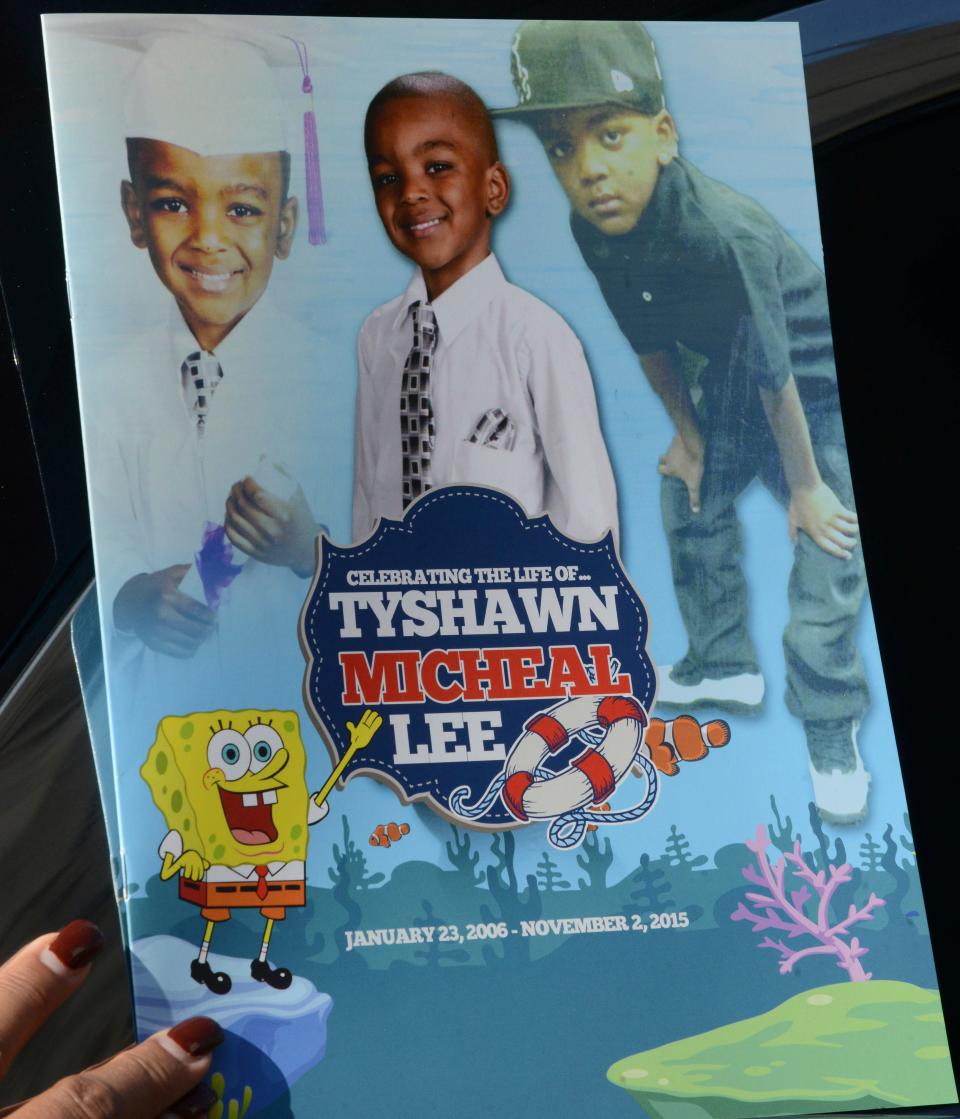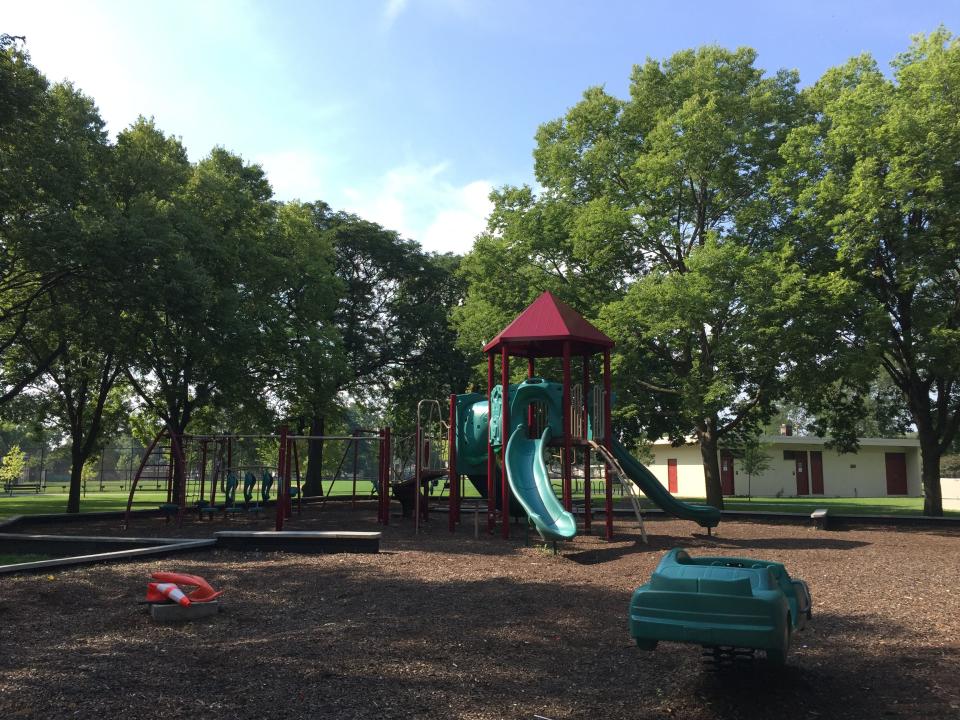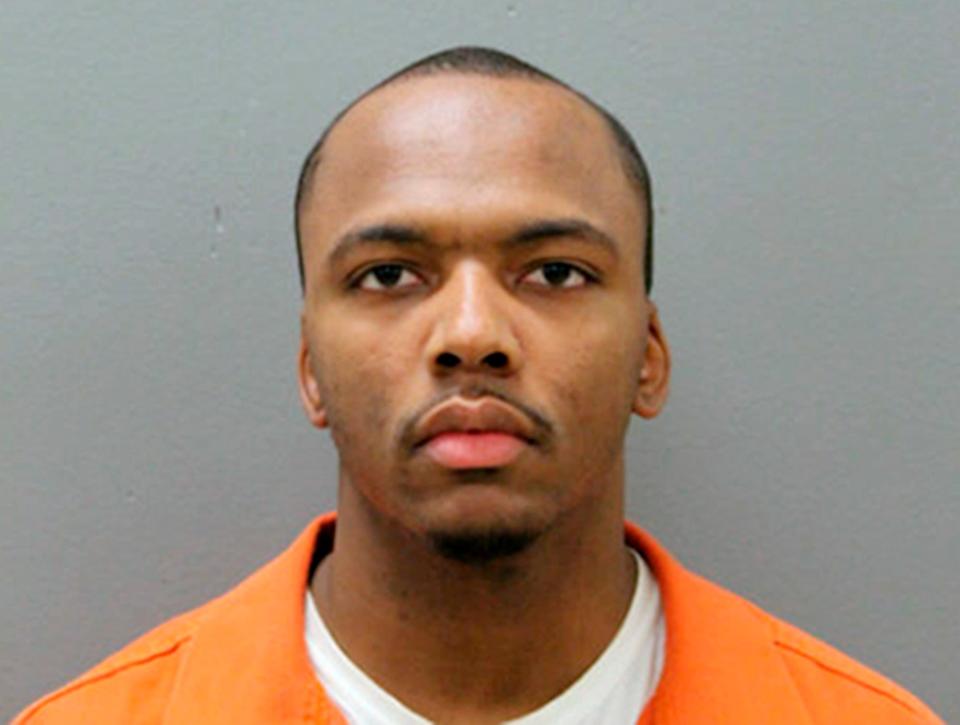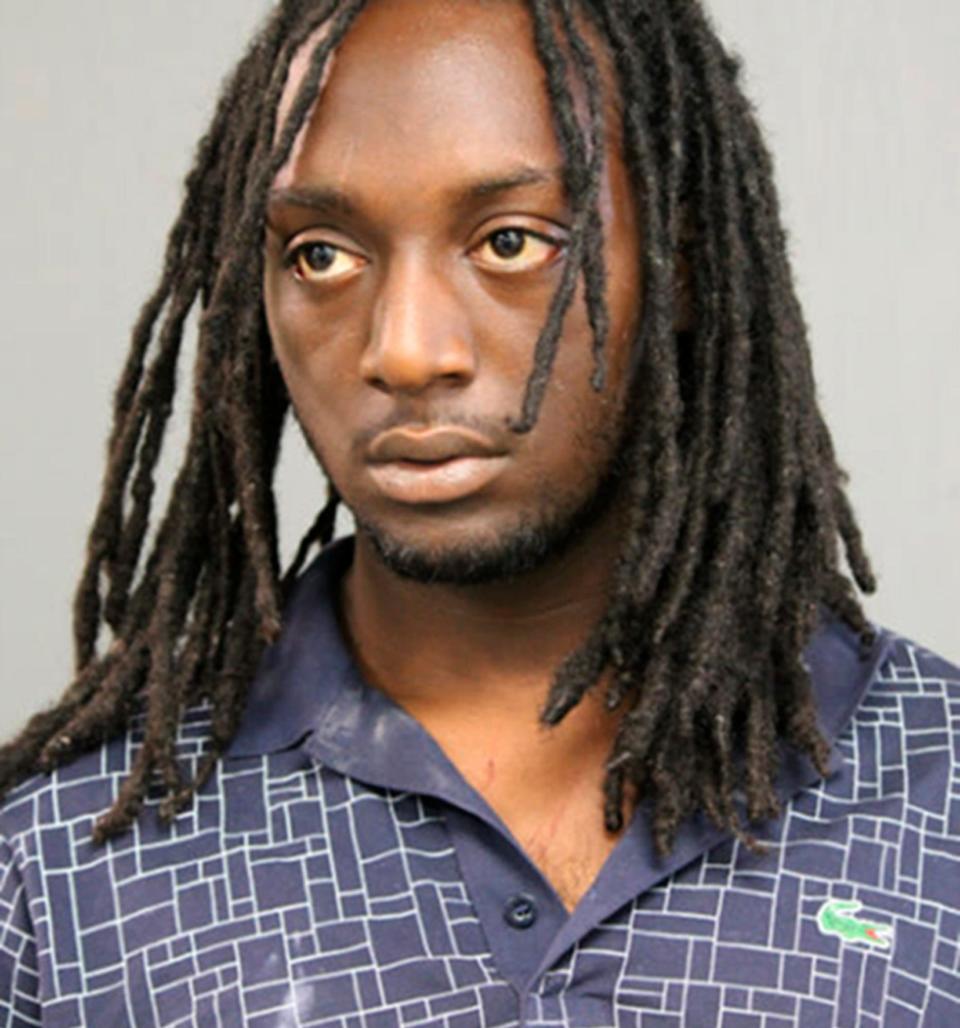The murder of 9-year-old Tyshawn Lee horrified Chicago. Now, gang members will stand trial
CHICAGO – Nearly four years after a 9-year-old boy was shot and killed in one of Chicago's most horrific crimes, two purported gang members are set to stand trial for murder.
Jury selection is scheduled to begin Friday in the trial of two of three men charged with carrying out the November 2015 attack on Tyshawn Lee, a fourth grader who prosecutors say was killed by gang members to send a message to his father, an alleged member of a rival gang.
Even for a city all too familiar with gun violence, Tyshawn's death was shocking.
"To me, it was one of the most horrendous and horrific things. I think it shook Chicago. It literally shook it – to think that we had stooped to the level of a 9-year-old being assassinated," said the Rev. Michael Pfleger, a Roman Catholic priest who presided over the funeral Mass.

Moms were working to end shootings: Then they were fatally shot
Pfleger has held countless funerals for children – including his own foster son – over his 44 years at the Faith Community of Saint Sabina in Chicago's Auburn Gresham neighborhood. But Pfleger said Tyshawn's killing was a new depth of horror.
"I was chaplain at the county jail back in the early '70s. If you had shot somebody’s mother or grandmother, you would have been killed in prison. There was a code," Pfleger said. "I don’t know when we as a nation are going to wake up. We have to stop making children road kill in America."
An act of revenge
After school on Nov. 2, 2015, Tyshawn Lee was sitting on a swing at the park down the street from his grandmother's house when a man approached him, dribbled his basketball, offered to buy him a snack and then led him to an alley, where he shot the child several times at close range, prosecutors say.
When Tyshawn raised his right hand to block the bullets, part of his thumb was shot off.

The execution-style shooting was an act of revenge. Two gang members, Dwright Boone-Doty and Corey Morgan, believed that a rival faction had killed Morgan's 25-year-old brother and wounded his mother a month earlier. Angered, Morgan said that he "was going to kill grandmas, mamas, kids and all," according to court documents.
Boone-Doty allegedly first retaliated by firing into a car occupied by a rival gang member, missing the rival but killing the 19-year-old woman who was sitting beside him. Boone-Doty has pleaded not guilty in that attack.
El Paso, Dayton, Chicago: Media doesn't treat all gun violence the same

Prosecutors say the defendants then turned their attention to getting back at Tyshawn's father, Pierre Stokes, who was also an alleged member of the rival gang. According to prosecutors, a third man, Kevin Edwards, drove Boone-Doty and Morgan to Dawes Park on the city's South Side and waited with Morgan in the SUV.
That's when Boone-Doty struck up a conversation with Tyshawn and led him to the alley, prosecutors say.
"It was an act of barbarism, the assassination of a 9-year-old child as a gang retaliation to get back at his father," said Garry McCarthy, then-head of the Chicago Police Department.
Pfleger quickly received word of the killing.
"I just remember being there that night. Right after it happened, I went over there. (People felt) anger and numbness that this happened in the community. People were horrified," he said.

Edwards, the driver, pleaded guilty to first-degree murder in exchange for a 25-year prison sentence.
On the day Boone-Doty first appeared in court accused of killing Tyshawn, he laughed about the murder and said he was writing a rap about it. That same day, Tyshawn's father, Stokes, opened fire on gang rivals, wounding three of them, authorities say. Stokes is in jail awaiting trial on aggravated battery and other charges related to that attack.
The trial of Boone-Doty and Morgan is set to begin Tuesday, Sept. 17, following jury selection Friday and Monday. Morgan and Boone-Doty, who will represent himself, will be tried together but before separate juries.
He dreamed of playing in the NBA
Hundreds from Chicago and beyond attended Tyshawn's funeral service that November, including state and local politicians and artist-activist Nick Cannon.
"School was the highlight of his day," Tyshawn's aunt, Valencia Lee, said in her eulogy.
Tyshawn loved playing basketball and video games, Lee said. He looked forward to outings at parks. He enjoyed getting haircuts, shopping for new clothes and snacking on Sour Patch Kids. And he dreamed of playing in the NBA.
Many in the Auburn Gresham community say Tyshawn is still deeply missed.
“The kids loved him," said Shon Whitton, a local sports team coach who lives in the neighborhood. "They talk about him all the time.”
Whitton works with students from Tyshawn's former school, Scott Joplin Elementary. He runs a local Teen Leadership Club, an after-school program that focuses on conflict resolution, life skills and community service.
He said people stopped going to Dawes Park after Tyshawn’s death, even though the murder didn’t happen there.
“We’re trying to do things to bring this park back to life. We’re trying to break that stigma of what happened," Whitton said.
Labor Day weekend gun violence: 7 fatally shot, 34 wounded in Chicago
Rey Costilla, 46, has lived in a house abutting the alley where Tyshawn was killed for more than 20 years. He and his wife raised their two sons there.
After the incident, the Costillas considered moving but decided to stay and establish a dialogue with neighbors. "We decided to stick it out and continue to help our neighbors and be aware. It’s home," Costilla said.
He hoped Tyshawn's killers would receive justice.
“I hope they pay for what they’ve done to the innocent boy. I hope the legal system does the right thing and puts them in jail for a long time," he said.

Chicago Public Schools did not immediately respond to a request for comment.
Tyshawn's mother, Karla Lee, could not be reached for comment.
Crime down in Windy City? Chicago had least violent January in 9 years
Shootings on the decline
In 2015, the year Tyshawn was killed, violence was on the uptick in Chicago. The city had 468 homicides that year – its highest number since 2012, when more than 500 people were killed, according to CPD reports.
Meanwhile, shooting victims jumped 15% to 2,981, according to the Chicago Tribune's homicide tracker.
The gang war that took Tyshawn's life involved as many as 15 shootings, including at least five homicides since 2011, according to the Tribune.
Things continued to worsen. At the end of November, Chicago became embroiled in controversy when police released the dash cam video of Laquan McDonald's murder, revealing that McDonald had been walking away from the police when officer Jason Van Dyke fired 16 shots. Protests erupted across the city.
Then, 2016 saw an even greater surge of violence, with homicides jumping by 64% to 769 and the number of shootings increasing by 47% to 4,369, according to the Tribune.
But even at its peak, Chicago's homicide rate (per capita) remained lower than that of cities like Detroit, New Orleans or St. Louis, a 2016 study by the University of Chicago's Crime Lab found. Chicago's homicide rate also remained below its own recent peak at the height of the crack cocaine epidemic in the 1990s.
The city, however, had the highest gun homicide rate of the five largest U.S. cities in 2016. Streets and alleys proved to be the most common locations for gun homicides and shootings.
A disproportionate amount of the violence occurred in a handful of neighborhoods on the city's South and West sides. These predominantly African American neighborhoods suffer from high levels of poverty, few job opportunities and often lack basic amenities like grocery stores.
While the report suggested possible causes of the surge of violence, it could not offer a definitive diagnosis.
Gun violence: Why Chicago PD can't get more residents to identify suspects
For the past two years, shootings have declined year-over-year, and 2019 is on track to continue the trend.
The CPD announced earlier this month that August experienced its lowest number of murders and shootings since 2011. Shooting incidents fell 19% and murders fell 23% in August compared to last year, according to the CPD report.
'Tyshawn’s death was preventable'
Following a back-and-forth on Twitter last week with Sen. Ted Cruz, R-Texas, Chicago Mayor Lori Lightfoot penned an op-ed in the Washington Post on Sunday to call for gun reform. She cited Tyshawn's case.
"As long as people can drive from Illinois to Indiana and purchase a personal arsenal without a background check, Chicago’s gun laws will always be as weak as those of the closest permissive state," Lightfoot wrote.
"The consequences of this situation are deadly. A gang member from Chicago bought at least seven illegal guns from someone in New Mexico. Two of those guns were used to commit homicides in the city, including the execution of a 9-year-old boy, Tyshawn Lee, in 2015. Tyshawn’s death was preventable."

Corey Morgan's brother Anthony directed his acquaintance in New Mexico to purchase the seven guns in four separate transactions, according to a court memo last month. Authorities tied two of those firearms to homicides, including Tyshawn's murder.
Morgan was sentenced to four years in prison.
“This is a case study in how illegal guns flood this district and terrorize our community,” Assistant U.S. Attorney James P. Durkin argued in the government’s sentencing memorandum. “Illegal firearms are the lifeblood of violent crime in this city, and they need to be treated as such.”
To advocate for gun safety laws, the Rev. Pfleger and others in Chicago are planning to send 10 buses of people to the Nation Rally to End Gun Violence in Washington, D.C., on Sept. 25, according to a news release Wednesday.
"With the continued increase of mass shootings and the ongoing violence in Chicago, and other major cities, we are asking Congress to protect the lives of American citizens," the release said.
Contributing: The Associated Press
Follow Grace Hauck on Twitter @grace_hauck.
This article originally appeared on USA TODAY: Tyshawn Lee murder: Chicago gang members to stand trial

